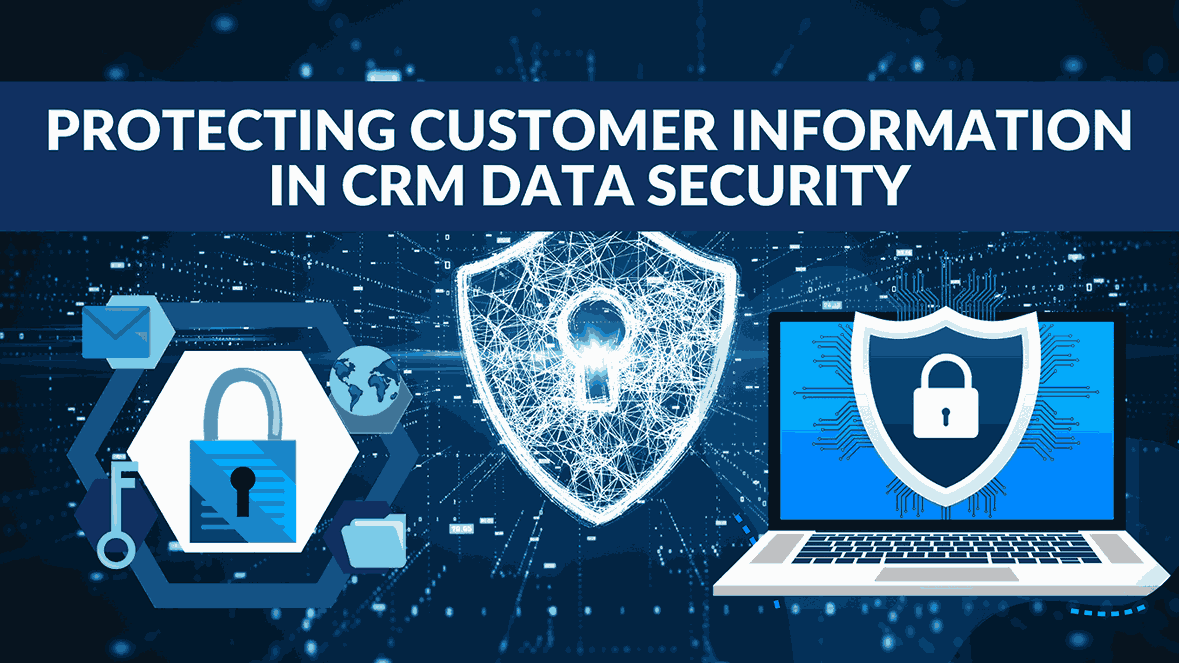Protecting customer information in CRM data security
- Proposal Software Customer Relationship Management


In today’s digital age, customer relationship management (CRM) systems have become the backbone of businesses, enabling them to efficiently manage and analyze customer data. However, with great power comes great responsibility. The security of customer information in CRM systems is of paramount importance, as data breaches and cyber threats continue to evolve and become more sophisticated. In this article, we will explore the inherent risks, key security measures, and the regulatory landscape surrounding the protection of customer data in CRM systems.
The Inherent Risk
CRM systems serve as a centralized repository for vast amounts of personal and transactional data. As a result, they have become a prime target for cybercriminals. Data breaches, cyber-attacks, and unauthorized data access can have severe consequences, both financially and reputationally. Let’s take a closer look at the implications of a CRM data breach:
1. Financial Consequences: Data breaches often result in substantial financial losses due to fines, legal fees, and costs associated with resolving the breach.
2. Eroded Trust: When customer data is compromised, trust is eroded. Customers expect businesses to safeguard their information, and a breach can damage the trust they place in your organization.
3. Brand Reputation: The reputation of a business is a valuable asset. A data breach can tarnish your brand’s image, making it less attractive to both existing and potential customers.
4. Legal Repercussions: In an increasingly regulated environment, businesses may face legal consequences if they fail to protect customer data. Non-compliance with data protection regulations can result in hefty fines.
Key Security Measures for CRM
To protect customer information in CRM systems, businesses must implement robust security measures. Here are key practices to enhance CRM data security:
1. Encryption: Data, both at rest and in transit, should always be encrypted. Encryption ensures that even if a cybercriminal intercepts the data, they won’t be able to read it.
2. Multi-Factor Authentication (MFA): MFA adds an additional layer of security by requiring multiple methods of verification. This significantly reduces the risk of unauthorized access.
3. Regular Software Updates: Outdated software is often vulnerable to exploitation by cybercriminals. Ensure that your CRM software and all related plugins or tools are regularly updated to patch security vulnerabilities.
4. Access Control: Limit who has access to CRM data and ensure that they only have access to the data necessary for their roles. Regularly review access rights and make adjustments as necessary.
5. Regular Backups: While backups don’t prevent a cyber-attack, they ensure that in the event of data loss, you have a secure backup to restore from. Regularly test your backup and disaster recovery procedures.
6. Employee Training: Human error is a significant cause of data breaches. Regular training for all staff can ensure that they are aware of best practices and knowledgeable about the latest cyber threats.
7. GDPR, CCPA, and Beyond: The Regulatory Landscape
In an era where data protection is a global concern, regulatory frameworks have been established to govern the use and protection of customer data. Two prominent regulations are the General Data Protection Regulation (GDPR) in Europe and the California Consumer Privacy Act (CCPA) in the United States. These regulations impose legal obligations on businesses to protect customer data and inform them of any data breaches. Non-compliance can result in substantial fines, making it even more crucial for companies to ensure the security of their CRM systems.
Conclusion
In today’s digital landscape, where data plays a pivotal role in business operations, securing this data is no longer optional; it’s an absolute necessity. CRM systems, while offering incredible value to businesses, also come with the responsibility of protecting the sensitive information they hold. By adopting a proactive approach to cybersecurity and implementing the key security measures outlined above, businesses can safeguard their data, preserve their reputation, and secure their future.
Don’t wait until a data breach occurs; take action now to protect your customer information and ensure the trust and loyalty of your valued clientele. Your business’s success and reputation depend on it.








